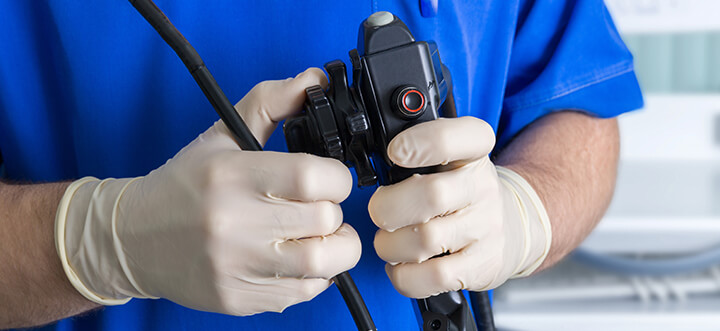Colonoscopy

What is a colonoscopy?
A colonoscopy is a procedure that detects changes or abnormalities in the large intestine (colon) and rectum. A colonoscopy is also performed to screen for colon cancer every 10 years, look for and remove polyps, and investigate other intestinal symptoms.
During a colonoscopy, a long, flexible tube (colonoscope) is inserted into the rectum. A tiny camera is attached to the end of the colonoscope that allows the doctor to view the entire inside of the colon.
Preparing for a colonoscopy
Your colon must be cleaned out before your colonoscopy for the best examination, so your doctor will give you a strong laxative to take the night before your procedure and the morning of the procedure. You can not eat solid food the day before the procedure, but you can drink clear liquids until a couple of hours prior. It is very important to discuss any daily medicine you take prior to the colonoscopy, especially any blood thinners. Your doctor will give you a set of instructions to follow in the days leading up to your colonoscopy.
What to expect during a colonoscopy
A colonoscopy typically last between 30 and 60 minutes, but can take longer if biopsies are taken. Before the procedure, you are given a sedative that will reduce any discomfort. The doctor will instruct you to lay on your side, and then he or she will insert the colonoscope into your rectum. The doctor will pump air into your colon, so that it will expand, and he or she can get a full view of the lining of the colon. The camera on the end of the colonoscope will send pictures to a monitor so your doctor can further study the inside of your colon.
When the doctor inflates your colon, you may experience some abdominal cramping or the urge to pass a bowel movement, but these side effects are mild and temporary. After the procedure, you may notice a small amount of blood after your first bowel movement, but this is not a cause for alarm. After the colonoscopy is over, you will stay under supervision until the sedative begins to wear off, but it takes up to a day for the sedative to completely wear off, so you will need someone to drive you home. You should be able to return to work the following day.
Forms for your Visit
For important information on how to prepare for your upcoming procedure, please download the forms below.